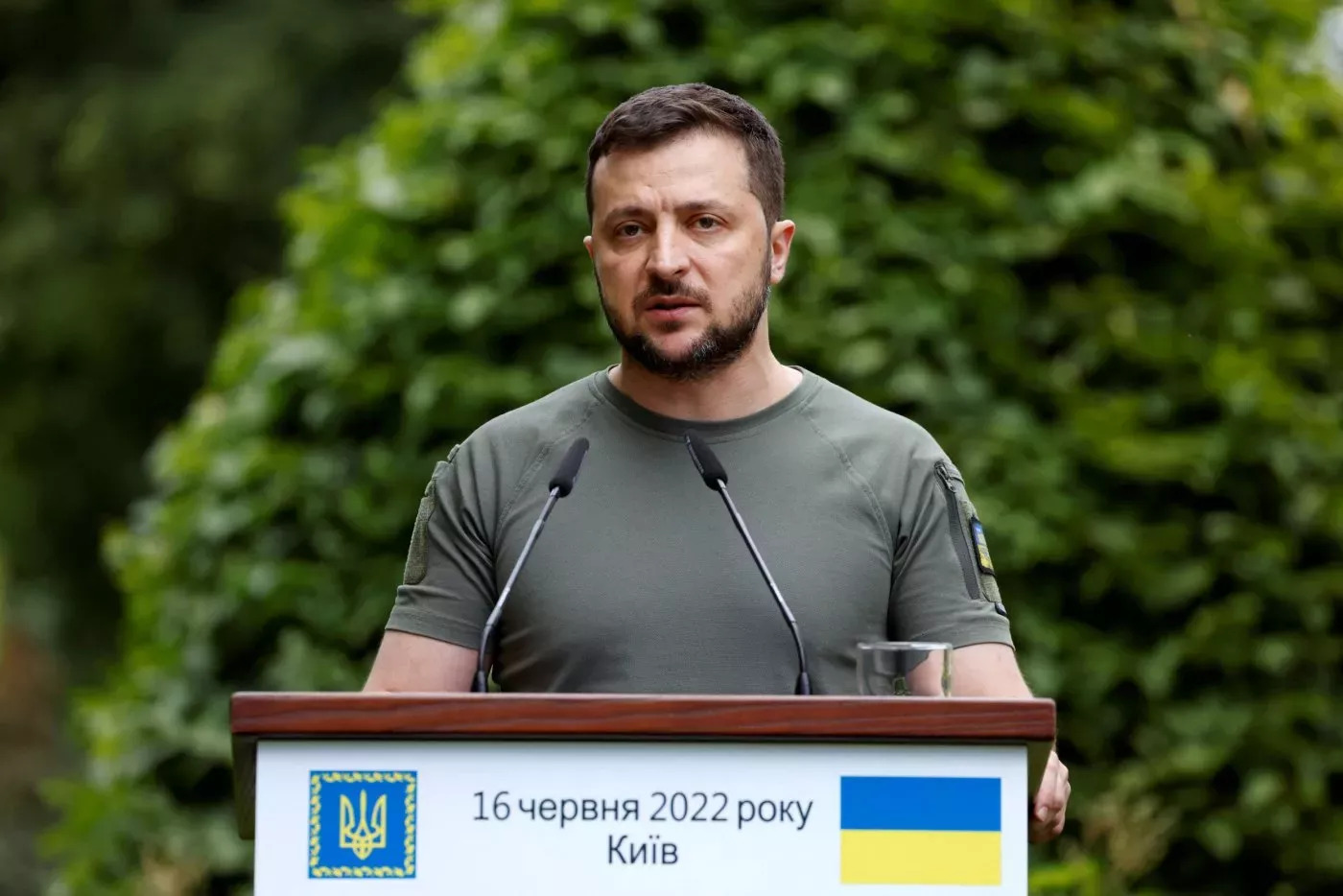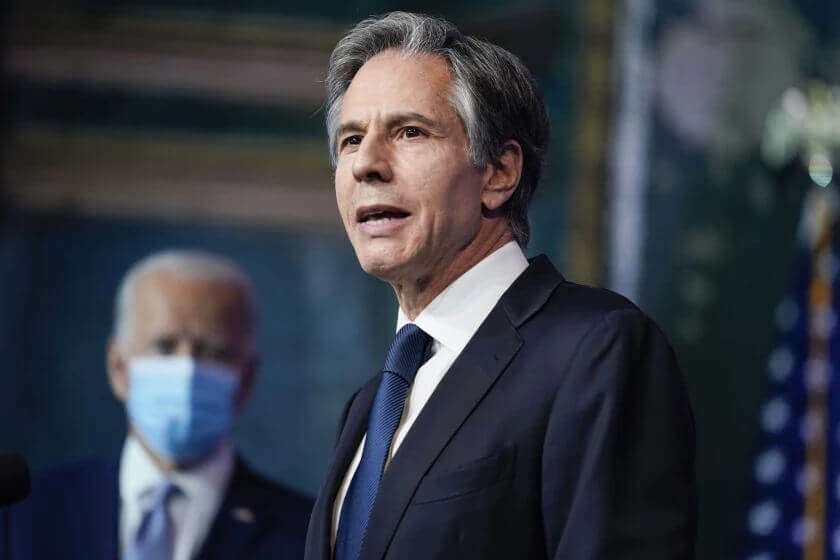South Asia
The Indian Ministry of External Affairs confirmed that Prime Minister Narendra Modi will attend the 14th BRICS Summit virtually. The two-day summit is set to begin tomorrow and will be hosted by China. [Hindustan Times]
A mob of Islamic extremists attacked an International Yoga Day event hosted by the Indian High Commission in the Maldives’ capital city, Male. 150 individuals, including diplomats and government officials, took part in the event. The police have already made six arrests. [NDTV]
Central Asia and the Caucasus
The United Nations Children’s Emergency Fund (UNICEF) on Tuesday expressed concerns over rising incidents of violence against women and children in Uzbekistan. “Women and children, especially girls, suffer on a daily basis from violence, which, unfortunately, is seen as acceptable, normal, and intra-family,” the organisation said. UNICEF called on Uzbek authorities to take steps toward “improving family support services and effective systems to protect survivors of violence.” [UNICEF]
The deputy prime ministers of Armenia, Azerbaijan, and Russia met in St. Petersburg on Tuesday to discuss the “unblocking of regional infrastructures” and advance peace talks between Baku and Yerevan. [News.am]
East and Southeast Asia
29 Chinese military aircraft flew into Taiwan’s air defence identification zone (ADIZ) on Tuesday, forcing Taiwan to issue radio warnings and scramble jets to monitor the intrusion. This month alone, China has sent 51 aircraft into Taiwan’s ADIZ, comprising 32 fighter jets, seven bombers, a refuelling plane, as well as 11 spotter planes. [Taiwan News]
The Taiwanese Foreign Ministry expressed disappointment that Qatar, the 2022 FIFA World Cup host, had changed the self-governing island’s name on an online fan application form for the tournament. The island was previously listed as “Taiwan,” however, its name has now been changed to “Chinese Taipei.” China’s foreign ministry responded by appreciating the Qatari government’s “commitment to the one-China principle and its handling of the issue in line with the established practice of international sports events.” [Focus Taiwan]
Europe
Spanish Deputy Prime Minister Teresa Ribera called on the European Union to quit the Energy Charter Treaty, saying it fails to meet the requirement of the Paris Agreement and the goals of the European Green Deal. This makes Spain the first member of the bloc to call for an exit from the treaty. [Politco]
The United Kingdom is set to introduce a law that will expedite Ukrainian children’s entry into the country. Reports suggest that over 500 children that fled the war in the eastern European country have been struggling to enter other European countries due to administrative hurdles. [The Guardian]
On Tuesday, the Estonian Foreign Ministry summoned the Russian Ambassador for the second time in two weeks to protest an “extremely serious and regrettable” incident concerning a Russian helicopter violating its airspace on June 18. In a statement, the foreign ministry called it “unacceptable,” stressing, “Russia must stop threatening its neighbours and understand that the price of the aggression Russia launched against Ukraine is indeed high.” [Reuters]
Latin America and the Caribbean
On Tuesday, 67 out of 84 lawmakers in El Salvador’s parliament, led by President Nayib Bukele, voted in favour of extending the state of emergency to tackle gang violence. The emergency was first imposed in late March and has now been extended for a third time, beginning June 25 for a period of 30 days. Christian Guevara, head of the president's New Ideas party, welcomed the extension and stated that this “is what the people are asking for.” However, rights groups and critics have pointed to mass detentions, arrests, and human rights violations. [Reuters]
On Tuesday, Brazilian President Jair Bolsonaro and Organization for Economic Cooperation and Development (OECD) Secretary-General Mathias Cormann inaugurated the meetings between Latin American and OECD nations to be held in Brazil between June 21-24, during which economic policies, education, and productivity matters will be discussed. Brazil’s reform agenda to meet OECD membership criteria is expected to be considered today. The country’s finance ministry further expects the launch of a European Union-financed project to aid its post-pandemic economic recovery. The 4th Ministerial Summit on Productivity will be held on Thursday and Friday, and the four-day event will conclude with the biannual meeting of the Regional Program Steering Group. [Merco Press]

Middle East and North Africa (MENA)
Syria, Lebanon, and Egypt signed a natural gas deal on Tuesday allowing Beirut to import Egyptian natural gas via Syria. “The importance of this deal […] stems from the fact that it will secure an additional four hours of electricity per day following its implementation,” Lebanese Energy Minister Walid Sayyad said. Lebanon has been facing severe shortages of gas, food, and medical supplies amid a devastating economic crisis. [Naharnet]
Turkey’s parliament on Tuesday extended the mandate for the deployment of its troops in Libya by 18 months. Turkish forces have been fighting in the North African country since 2020 and Ankara’s intervention has resulted in major setbacks for warlord Khalifa Haftar and turned the tide of the war in favour of the Government of National Accord (GNA). Turkish President Recep Tayyip Erdoğan said that political instability in Libya continued to pose “risks and threats” to Ankara’s interests in the Mediterranean and North African regions. [Associated Press]
North America
In an interview with the National Post on Tuesday, Canada’s Conservative Party leadership candidate Scott Atchison stated that as Prime Minister, he would recognise Taiwan as a sovereign state and put an end to the country’s adherence to the ‘one-China’ policy. Furthermore, he stressed that China’s espionage actions “threaten” the Canadian Chinese community, too. “This is not just about standing up to a bully nation, but it’s also standing up for Chinese Canadians,” he claimed. [National Post]
On Tuesday, the United States (US) State Department announced the implementation of the Uyghur Forced Labor Prevention Act, which bans the imports of Chinese goods from Xinjiang and demands companies to prove that their products were not made using forced labour. “We are rallying our allies and partners to make global supply chains free from the use of forced labour, to speak out against atrocities in Xinjiang, and to join us in calling on the government of the People’s Republic of China (PRC) to immediately end atrocities and human rights abuses, including forced labour,” US Secretary of State Antony Blinken said in a statement. [The US State Department]
Oceania
Australian Prime Minister Anthony Albanese said in a statement on Wednesday that the Director-General of the Office of National Intelligence, Andrew Shearer, has been asked to assess “the implications for national security of climate change.” Albanese will rely on Shearer’s findings to determine whether or not to establish the proposed Office of Climate Threat Intelligence. Albanese is expected to introduce stronger climate action policies after Australia’s reputation on this front slightly deteriorated under his predecessor Scott Morrison. [The Straits Times]
New Zealand reported 5,499 COVID-19 cases on Wednesday, including 18 deaths. New COVID-19 Response Minister Dr Ayesha Verrall said she cannot rule out the possibility of future lockdowns and border closures; however, she stressed that such measures would only be used as a “last resort.” [NZ Herald]
Sub-Saharan Africa
The Economic Community of West African States (ECOWAS) has deployed 631 troops to Guinea-Bissau to help stabilise the country after failed coup attempt earlier this year, wherein President Umaru Sissoco Embalo claimed to have survived an assassination attempt by drug traffickers. Defence Minister Marciano Silva Barbeiro welcomed the move and thanked the West African nations for their “solidarity at a time when Bissau was grappling with upheavals linked to several attempts to subvert constitutional and democratic order.” Guinea-Bissau has seen several coup attempts since its independence. The 15-member regional bloc had earlier stationed its forces in the country between 2012-2020 to prevent a military takeover. [Reuters]
On Monday, during his closed-door address to the African Union (AU), Ukrainian President Volodymyr Zelenskyy said Africa has been “taken hostage” in the Russian invasion, claiming that the Kremlin is trying to use “the suffering of the people to put pressure on the democracies that have imposed sanctions” against it. In response, AU Chairperson Moussa Faki Mahamat reiterated bloc’s call for “the urgent need for dialogue to end the conflict.” Likewise, AU chair and Senegalese President Macky Sall called for a “peaceful resolution of conflict and the freedom of commerce” to ensure wheat exports to Africa. [Africa News]

